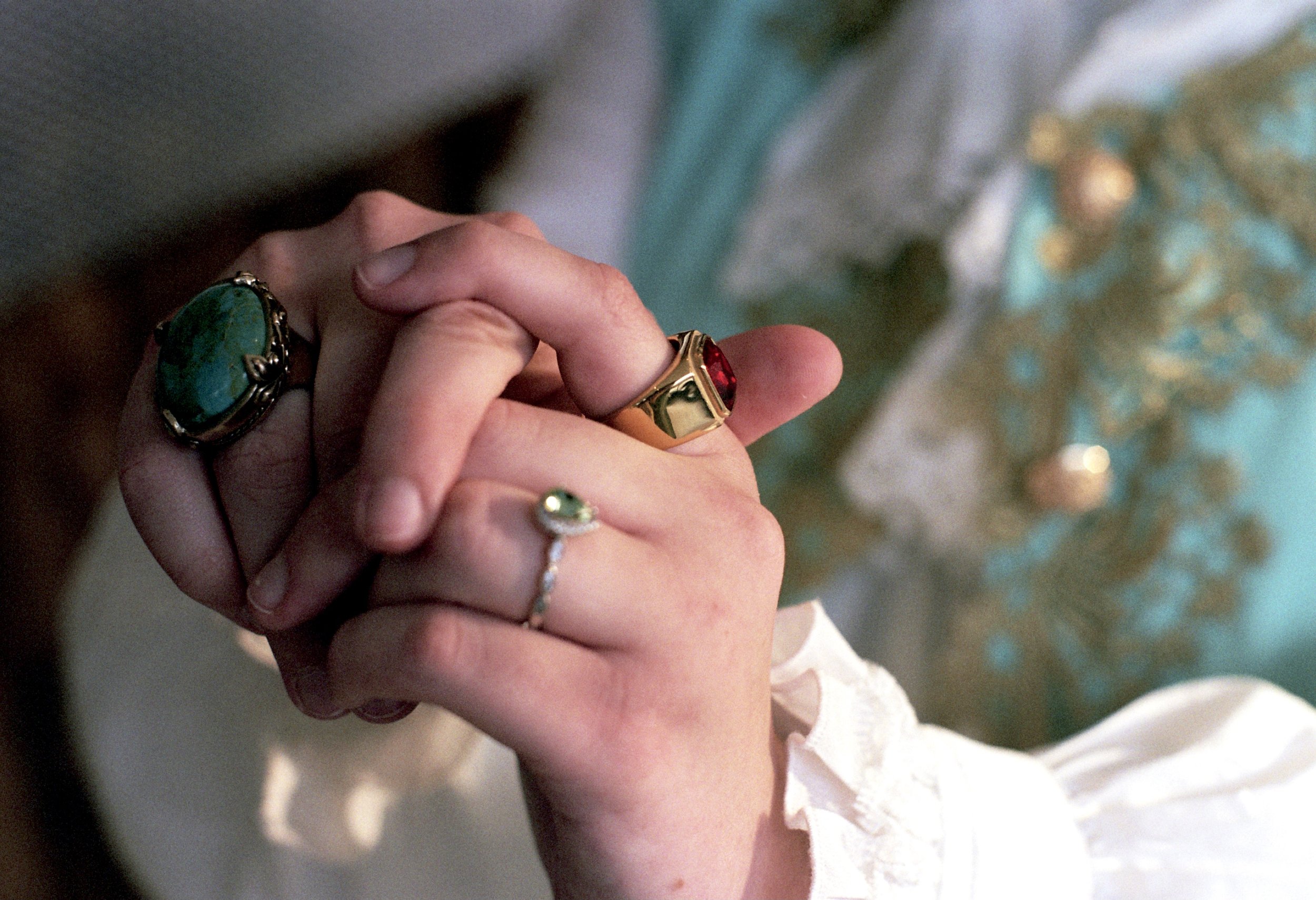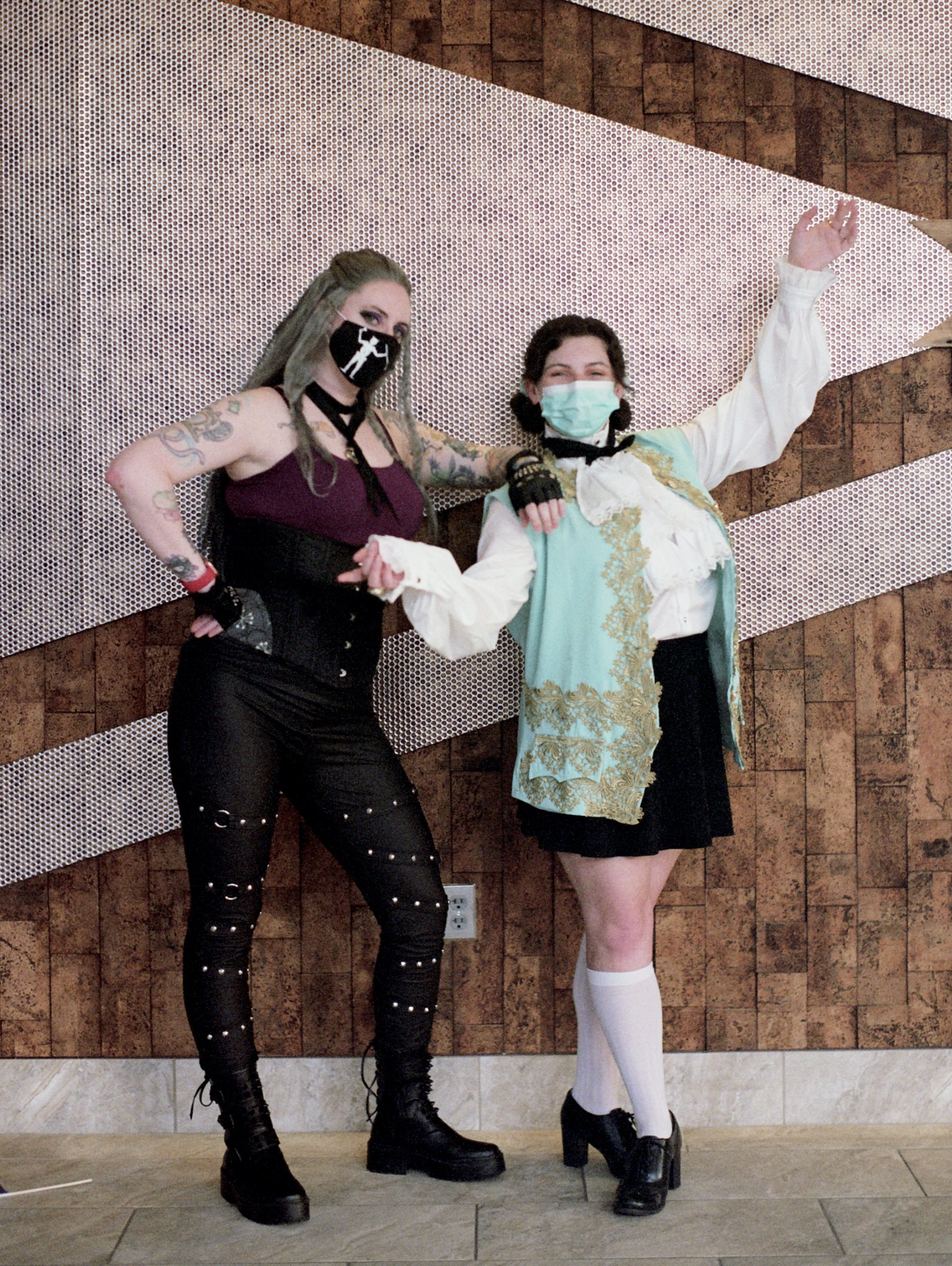
The Proof
Is In
The Pirates:
an interview with Rhys Darby
by M. Price
Twenty-five years in the business couldn’t prepare Rhys Darby for this.
“I come from the days of when you’d write a fan letter,” he chuckles over Zoom, astonished by the attention he’s earned from his latest role. “It’s been a learning experience.”
The New Zealand actor and comedian’s performance in HBO’s new comedy series Our Flag Means Death has charmed audiences, sparked Emmy nomination chatter, and amassed a fervently dedicated fanbase with his portrayal of a fictionalized version of real-life pirate, Stede Bonnet. His role of Murray Hewitt in HBO’s Flight of the Conchords garnered a cult following and his voice acting as Coran Smythe in Voltron: Legendary Defender brought him to the famous San Diego Comic-Con in 2018, but the response to Our Flag “was tenfold,” says Darby.
“It still is, like, every day,” that fans of the show take to Twitter to tag him and other cast members in posts of fanart or share Tiktoks of themselves cosplaying as different characters from the show. Darby is overwhelmed by the magnitude of the fandom’s passion, but he is not without earnest gratitude. “We didn’t know what to expect [from making Our Flag]—I knew that this show was really representative and really beautiful, and I knew that something was going to come from it—but I was absolutely blown away.”
···
Throughout Darby’s career, his reverent belief in and dedication to imagination has kept him anchored more than anything else. “There’s nothing more important to me than imagination. Adults tend to lose it and that’s where everything goes wrong, and it’s really sad to see. I don’t think I’ll ever lose it.” To Darby “imagination is the most important tool” and has been “the touchstone for creativity since the beginning.” As a young and devoted fan of the comedy troupe Monty Python, Darby “always wanted to be in a sketch group.” “My first comedy duo… [Grant Lobban and I] would write songs and write sketches that were imaginary and just really silly and crazy, but all with good intent.” After some time, the two comics parted but Darby’s work didn’t stop there. “Going forward on my own, I would keep writing sketches but just playing all the characters myself.” Short Poppies is the culmination of this kind of character writing. A mockumentary created by Darby, the 2014 series features eccentric characters in a fictional New Zealand town being reported on by New Zealand journalist, David Farrier. It’s obvious that collaboration with artists who put the same weight and belief into imagination and playful fun is distinctly important to Darby, which makes the success of Our Flag all the more beautiful and gratifying. Darby never was a part of a proper sketch troupe but has seemingly found community in these loveable pirates and the crew of misfits.
Of course social media has allowed for more immediate and sustained fan connection and interaction, but the influence of online engagement doesn’t stop there. HBO didn’t roll out strategic, big-budget advertising for Our Flag in the same way its shows like The Staircase or the second season of The Flight Attendant were marketed. Rather, it was due to the fans' auspicious excitement, rather than the platform’s, that the show held the number one spot of most in-demand break-out series for seven consecutive weeks according to The Wrap, an analytics resource “which takes into account consumer research, streaming, downloads and social media, among other consumer engagement.” For those seven weeks, the demand for Our Flag beat out Disney+’s new miniseries, Moon Knight, which speaks volumes as Marvel has a notoriously passionate fanbase of its own. The week of its premiere, new series from Paramount+, Star Trek: Strange New World, briefly took over the top rank as most in-demand until one week later when Our Flag surpassed the demand of Strange New World, once again reclaiming its reign at number one.
On June 1, (notably the beginning of Pride Month) HBO announced the renewal of Our Flag Means Death after months of weighted anticipation, felt by both the cast and the fandom. “The beauty of this show is that they had a writing room that was representative,” says Darby. Even he notes that “you can’t ignore this show” and its legacy of heartful, earnest storytelling of queer characters, which has been “so obvious” but “completely groundbreaking.” He says Our Flag “is an example of the best storytelling because it is fully inclusive and representative” and has succeeded because “people can get trapped in their little bubbles—and they write in those bubbles. It’s egocentric. [Our Flag] isn’t.” If there is one lesson that platforms, producers, and writers can learn from the response to season one of Our Flag it is that the demand for meaningful, representative stories centering on marginalized characters is at an all-time high, and audiences are ready to show up in droves to support these stories. Network-based programs can be a bit behind, Darby says, so “it’s up to innovative streaming shows” to highlight projects that give marginalized stories mainstream focus.
“It feels really good to be in a flagship show,” Darby pauses and grins, fully aware of and delighted by the pun he’s just made, “that is kind of leading the way.”



(1) Cain Catto, Meghan O., Hope M., and Gretchen Foster in Our Flag Means Death inspired cosplay.
(2) The hands of Hope M. in Stede Bonnet cosplay.
(3) Meghan O. and Hope M. cosplay as
Blackbeard and Stede Bonnet.
On June 29, Darby kicked off a string of East Coast tour dates in Red Bank, New Jersey, with further stops in Connecticut, New York, Rhode Island, and Massachusetts. An amalgam of his past specials, “You’ve Seen My Stand-Up, Now, See It… Again!” is Darby’s way of showcasing his twenty-five years of stand-up work while debuting some new bits and, of course, honoring one of the reasons he’s touring again: the fans. Due to such high demand and massive support from Our Flag fans, second shows were added when tickets to some of the dates quickly sold out. Tickets to Darby’s show at The Bell House in Brooklyn sold out within three minutes of being posted for sale, leaving many eager fans stunned.
Darby has a thoughtful awareness about why his comedic style has landed where it has and with whom it’s landed. “I know from all the stuff that’s happening online that people are checking out all my old stuff, and I love that… People can see me for all the different, funny character pieces I’ve done. They know what I’m like as a comedian. They know my sense of humor is silly, it’s kind-hearted, and it’s non-offensive—it’s perfect for the community.“ Within the Our Flag fandom, Darby has noticed a real presence of camaraderie and protection where fans are “getting strength from each other” and are “making up their own boundaries and rules to keep everyone safe.” A sentiment of open communication is present in the fandom, seemingly being echoed from the first season of Our Flag when Darby’s character, Stede Bonnet, encourages the pirates he captains that, during times of collective strife or hardship, they should “talk it through as a crew.”
···
Bracing for the fervor he might face on tour, Darby counters and buoys his trepidation with playfulness. “I’m really blown away by how fast these things have sold out…but I can understand why. And I’m a little scared, I’m a little worried, you know, [to see how wild fans might be].” Smiling through an exaggerated New Zealand accent, he impersonates Steve Wrigley, a fellow kiwi comic and friend who will open for his East Coast dates, “‘You’d better be ready, you know, people are going to be turning up with homemade baked goods!’”
Though understandably timid, and despite any hint of nerves, Darby approaches the fans’ dedication with empathy and care. “I am ready. I know it’s going to be positive because I know the community is really strong and positive.” He proves that he has been following some of the fandom’s online discourse by pointing out how they have emphasized respect for the fact that his stand-up tour is “not about Our Flag Means Death.” Still, Darby has a generous outlook and understands that his tour will be a chance for fans to meet in person for the first time and celebrate Our Flag, even if he doesn’t acknowledge it.
“But of course I’m going to reference the show! It’s gonna be a learning experience for all of us, but all I want to do is give a really good, positive, fun night for anybody.”
···
The energy in New Jersey on the second night of Darby’s tour is electric, buzzing. Fans have traveled as far as Ohio, Maryland, and Pennsylvania. Some have turned out in Our Flag cosplay and many are wearing the famous Old Navy Orange Shirt. Some have gifts for Darby; one fan hands out homemade pins with the Reese’s Pieces logo borrowed and rebranded as Rhys’s Pieces. When Steve Wrigley kicks off the show, one of these pins can be seen on the lapel of his jacket—from the fans to his longtime mate, the sincere joy for and celebration of Darby is refreshing, moving.
At the end of his time, Wrigley asks the audience if they are ready for a fun night and the screams that erupt from the crowd are reminiscent of Beatlemania. The stage lights bounce and swirl about the room, the beginning of “White Room” by Cream blares, and Darby bursts onto the stage making his introduction in a barrage of high energy—and impressively limber—kicks, spins, and wild dance moves. He opens with his iconic robot impression and later moves on to do one of his favorite sound effects: a creaking door. The commitment to the bit pays off and the sound is spot on—through one big, long-lasting breath, Darby pantomimes a child on Halloween opening the door of a haunted house to hit his last candy target of the night; his arm slowly pushing the imaginary door, his lips pursing further out with every second of the spooky sound effect. The way Darby’s eyes begin to bulge and how intensely red his face becomes immediately brings to mind Marty Feldman and his sketch comedy contemporaries; it is clear Darby is solidifying his place among the comedy greats. In character, Darby pokes his head through the invisible threshold, lets out a startled shriek, and runs away from his haunted house. When he finally turns to face the audience, he, too, is laughing.
Later in the show, Darby speaks fondly about his childhood, how it was just him and his mom growing up.
“I loved my youth,” he says, “Still in it in my head.” And, after a beat, Darby enthusiastically shares a piece of advice that has served him well—“Never grow up!”
Steve Wrigley, Finn Darby, and Rhys Darby in Red Bank, New Jersey.
